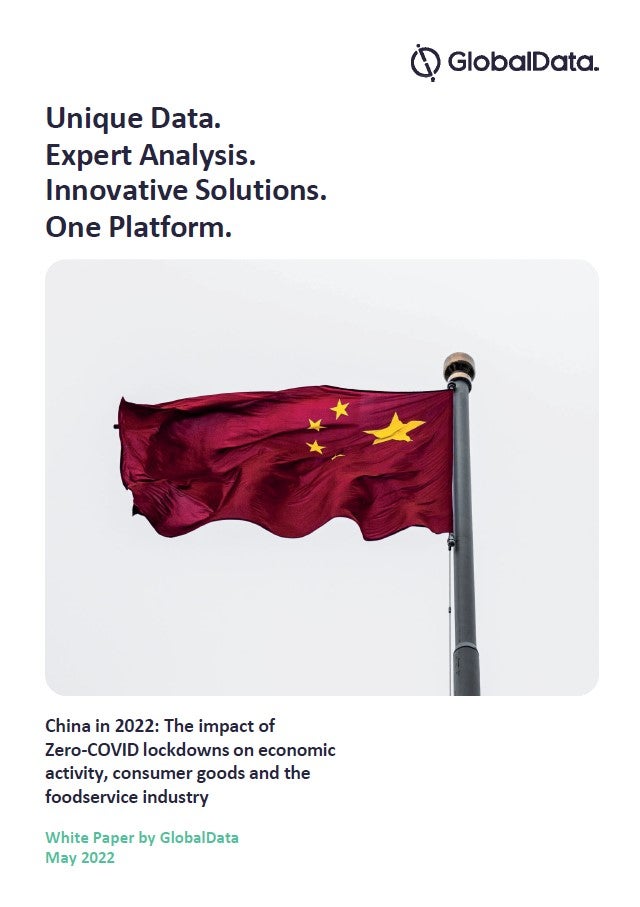
Suning, one of China’s largest electronics retailers, defaulted on a 36.7m yuan (US$5.75m) payment and was subsequently sued by its supplier Chengdu Rainbow Appliance Group. The legacy firm has been battling liquidity issues and has estimated debts exceeding US$6.6bn.
On Monday, Chengdu Rainbow Appliance Group issued an announcement saying that it had filed a lawsuit with the Intermediate People’s Court of Nanjing City, ordering Suning to settle its outstanding liabilities immediately.
How well do you really know your competitors?
Access the most comprehensive Company Profiles on the market, powered by GlobalData. Save hours of research. Gain competitive edge.

Thank you!
Your download email will arrive shortly
Not ready to buy yet? Download a free sample
We are confident about the unique quality of our Company Profiles. However, we want you to make the most beneficial decision for your business, so we offer a free sample that you can download by submitting the below form
By GlobalDataAccording to the filing, Suning has four outstanding payments to its supplier, amounting to 36.71m yuan. Chengdu Rainbow Appliance said it had attempted on several occasions to get its customer to complete the payment, which Suning allegedly refused.
Chinese media reported that the case was accepted on November 18 and that trial had not yet started.
On Monday, the company’s Chairman, Huang Mingduan, and President, Ren Jun, issued a letter to all employees, saying that Suning will strive to achieve more positive results in November.
The document said that their sales target for the Double Eleven shopping festival had been fully met, with goals reached by all major channels such as physical appliances stores, Retail Cloud, Suning.com and the official Suning flagship store on Tmall (an ecommerce platform operated by Alibaba). In China, November 11 is a shopping festival not unlike Black Friday or Cyber Monday in the West.
The letter also pointed out that “in the past six months, the group had encountered unprecedented difficulties”, calling on all employees “to not avoid problems nor believe in rumours.” Instead, management suggested that employees should devote their energy to customer service and sales promotion. Only by doing so would the company be able to make solid progress towards its future goals.
Suning has been dealing with bankruptcy rumours for a while now. On November 16, it posted a statement on the Chinese social media blog Weibo, disputing the trending topic of its potential bankruptcy. It subsequently reported the incident to public security officials, who said that the rumour-stirrers would be investigated for legal responsibility in accordance with the law.
According to GlobalData’s companies database, Suning reported revenue of US$36.6m in 2020, down 6.29% compared to the previous year. Its net profit margin dropped by 146.2% between 2019 and 2020.
The company is traded on the Shenzhen Stock Exchange and has a market cap of US$5.77bn. Following the news of the court filing, share prices went down by 7%.
In July, a government-led consortium of investors set aside US$1.4bn to bail the company out. Investors involved in the deal included the Nanjing municipal government, ecommerce giant Alibaba, home appliance manufacturers Haier and Midea Group, electronics company TCL Technology and Chinese smartphone brand Xiaomi.
Founded in 1990 in Nanjing, capital of Jiangsu, Suning.com grew from a 200-square-metre store that sold air conditioners into one of the country’s largest high street retailers of home appliances and consumer electronics.
Its founder, Zhang Jindong, is known as an extravagant business mogul. Apart from his involvement in retail and real estate, Zhang was also elected to the National Committee of the Chinese People’s Political Consultative Conference, a senior governmental body. He was a member of the Provincial People’s Congress, but not the National People’s Congress.
In 2016, Zhang signed a contract to purchase a majority stake in the Italian football club Inter Milan via his own private holding company Suning Holdings Group, which now holds a 68% stake in the club.




